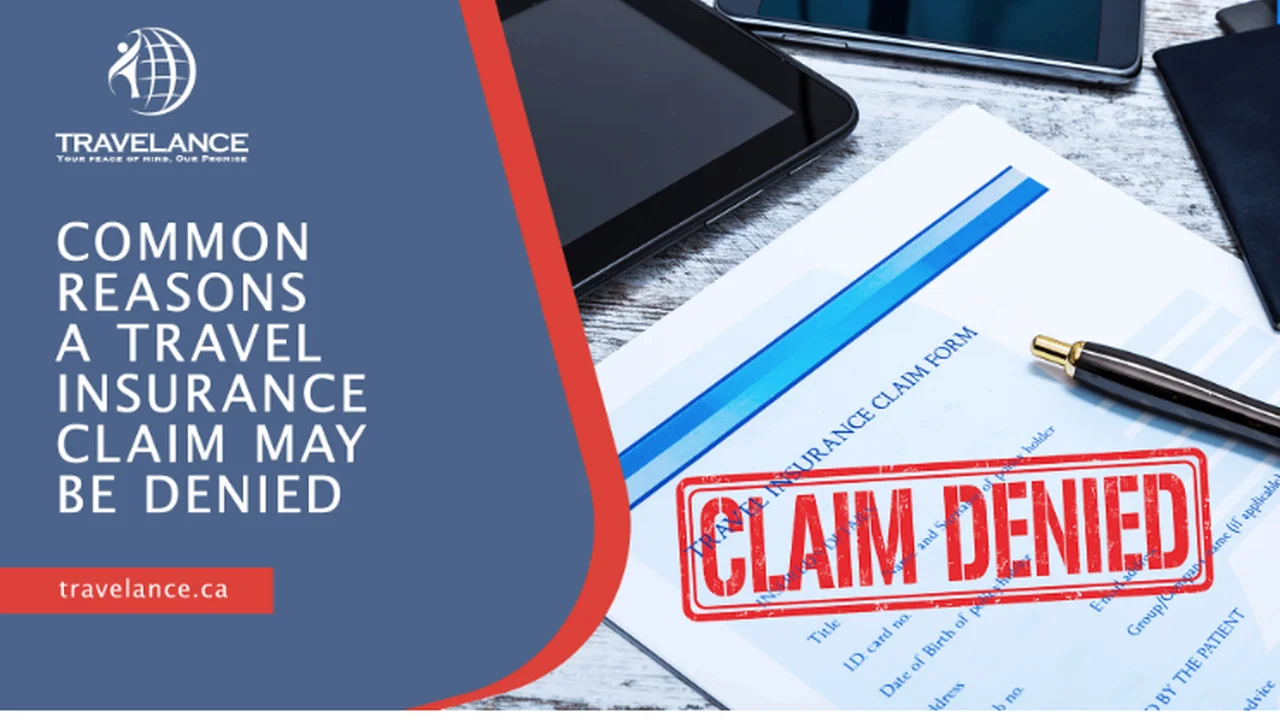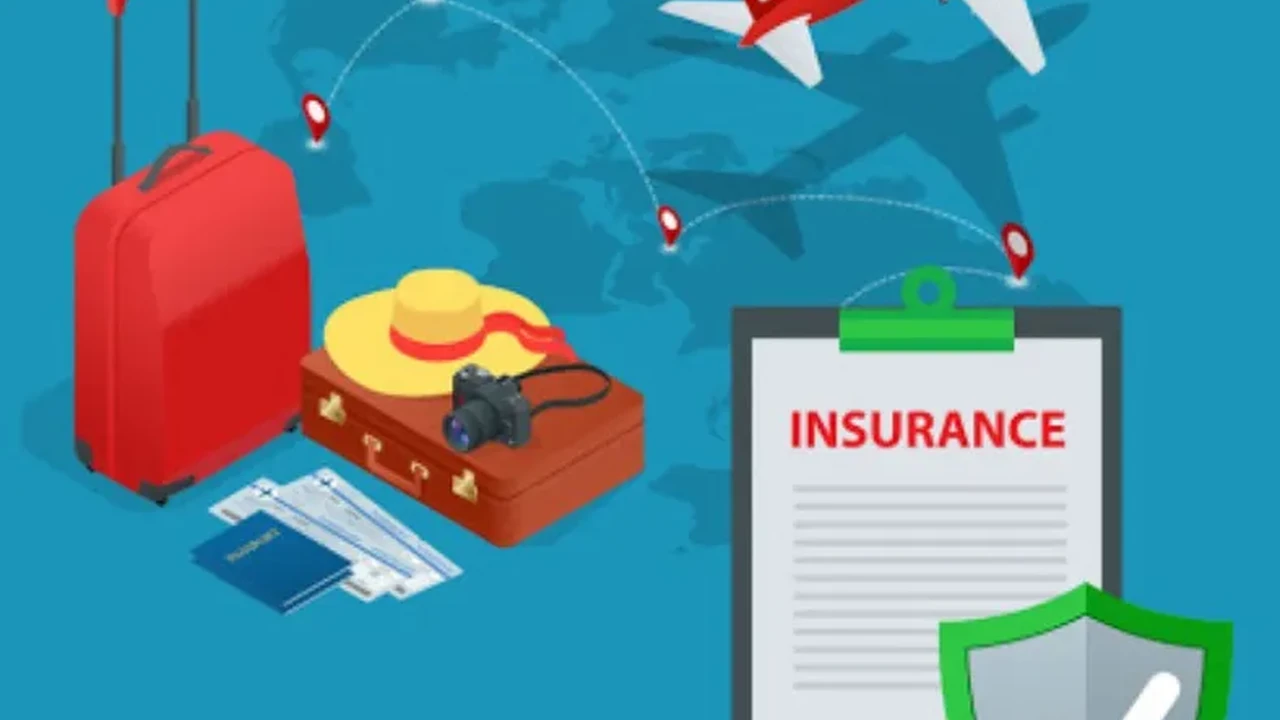Travel Insurance and Credit Card Benefits: Are You Covered?

Understanding Travel Insurance Credit Card Benefits The Basics
So, you're planning a trip! Exciting! Before you pack your bags and dream of sun-soaked beaches or snow-capped mountains, let's talk about something less glamorous but super important: travel insurance. Now, you might be thinking, "Hey, I've got a credit card! Doesn't that cover me?" Well, maybe. But it's crucial to understand the nuances of travel insurance and credit card benefits to avoid any nasty surprises on your vacation.
Many credit cards offer some form of travel insurance as a perk. This can include things like trip cancellation/interruption insurance, baggage delay/loss coverage, rental car insurance, and even emergency medical assistance. The catch? These benefits are often limited in scope and coverage. They might only apply if you used your credit card to pay for the trip, and they might have strict limitations on the amount they'll reimburse you. Plus, the fine print can be denser than a brick.
Think of your credit card benefits as a safety net, not a comprehensive safety harness. It's good to have, but you shouldn't rely on it as your sole protection. Let's delve into specifics.
Credit Card Travel Insurance Perks Trip Cancellation Interruption Coverage
Trip cancellation and interruption coverage are common perks. Imagine this: you've booked your dream trip to Italy, but a week before you're supposed to leave, you come down with a terrible flu. With trip cancellation insurance, you can potentially recoup the non-refundable costs of your flights, hotels, and tours. Credit card coverage *might* offer this, but often with limitations. They might require specific documentation, have a maximum payout amount, or only cover certain reasons for cancellation (like illness or injury of you or a close family member). A dedicated travel insurance policy is often much broader, covering things like natural disasters, terrorism, or even unforeseen business obligations.
Trip interruption coverage is similar, but it applies *during* your trip. Let's say you're hiking in the Swiss Alps, and you break your leg. Trip interruption insurance can help cover the cost of changing your flight home, finding accommodation while you recover, and even medical expenses (though usually only up to a certain limit). Again, credit card coverage might be less comprehensive than a dedicated policy. For example, they might not cover the cost of a medical evacuation, which can be incredibly expensive.
Baggage Delay Loss Coverage What Happens to Your Stuff
Lost luggage is a traveler's nightmare. Credit cards often offer baggage delay or loss coverage, which can help reimburse you for the cost of replacing essential items if your luggage is delayed or lost. However, the reimbursement amounts are often relatively low (think a few hundred dollars), and there are usually strict requirements about how long the delay must be before coverage kicks in. For example, many cards require a delay of at least 12 hours before they'll reimburse you for toiletries or clothing. A dedicated travel insurance policy typically offers higher reimbursement amounts and may have fewer restrictions.
Consider this scenario: you arrive in Tokyo for a business conference, but your luggage doesn't. You need to buy a new suit, shoes, and toiletries immediately. Your credit card might cover some of these expenses, but it might not be enough to cover everything, especially if you need high-quality business attire. A comprehensive travel insurance policy would likely offer more generous coverage.
Rental Car Insurance Credit Card vs Dedicated Coverage
Renting a car? Many credit cards offer rental car insurance, which can save you money on the collision damage waiver (CDW) offered by the rental car company. However, it's important to understand what kind of coverage your credit card provides. Most cards offer secondary coverage, which means that they only pay out after your primary car insurance policy has been exhausted. If you don't have primary car insurance, or if your primary policy has a high deductible, you could still be on the hook for significant expenses. Some credit cards offer primary coverage, but these are less common and often come with an annual fee.
Dedicated travel insurance policies often offer primary rental car coverage, which means they'll pay out regardless of whether you have other insurance. This can be a huge benefit, especially if you're renting a car in a foreign country where your regular car insurance might not be valid. Plus, some travel insurance policies cover things that credit card insurance doesn't, such as damage to tires or windshields.
Emergency Medical Assistance Are You Really Protected
This is where the rubber really meets the road. Getting sick or injured while traveling can be incredibly expensive, especially in countries with high medical costs. Many credit cards offer emergency medical assistance, which can include things like arranging for medical care, translation services, and even medical evacuation. However, the coverage limits are often much lower than those offered by a dedicated travel insurance policy. For example, a credit card might only cover up to $10,000 in medical expenses, while a travel insurance policy could cover hundreds of thousands or even millions of dollars.
Furthermore, credit card coverage often has limitations on pre-existing conditions. If you have a chronic health condition, your credit card might not cover any medical expenses related to that condition. A dedicated travel insurance policy can often be tailored to cover pre-existing conditions, although you might have to pay a higher premium.
Imagine this: you're trekking in Nepal, and you develop a severe case of altitude sickness. You need to be evacuated to a lower altitude for treatment. A medical evacuation can cost tens of thousands of dollars. Your credit card might not cover the full cost, leaving you with a huge bill. A comprehensive travel insurance policy would likely cover the entire evacuation, as well as any necessary medical treatment.
Specific Travel Insurance Product Recommendations and Comparisons
Okay, let's get practical. Here are a few travel insurance products worth considering, keeping in mind that your specific needs will dictate the best choice for you. Always get quotes from multiple providers and read the fine print carefully!
World Nomads Explorer Plan For Adventure Travelers
World Nomads Explorer Plan: This is a popular choice for adventure travelers. It covers a wide range of activities, including hiking, skiing, and even scuba diving. It also offers high medical coverage limits and 24/7 emergency assistance. Use Case: Perfect for backpacking through Southeast Asia, climbing Kilimanjaro, or surfing in Costa Rica. Pros: Comprehensive coverage for adventurous activities, high medical limits. Cons: Can be more expensive than other options, may not be suitable for travelers with pre-existing conditions. Price: Varies depending on trip length and destination, but typically ranges from $50-$150 per week.
Allianz Global Assistance OneTrip Prime Plan For General Travel
Allianz Global Assistance OneTrip Prime Plan: A solid all-around option for general travel. It offers trip cancellation/interruption coverage, baggage delay/loss coverage, and emergency medical assistance. Use Case: Ideal for family vacations, cruises, or business trips. Pros: Good value for the money, covers a wide range of travel scenarios. Cons: Medical coverage limits may be lower than some other options, may not be suitable for travelers with pre-existing conditions. Price: Typically ranges from $40-$100 per trip.
Travel Guard Preferred Plan For Cruise Enthusiasts
Travel Guard Preferred Plan: Specifically designed for cruise travelers. It offers coverage for trip cancellation/interruption due to illness or injury, missed connections, and lost or damaged luggage. It also includes emergency medical assistance and evacuation coverage. Use Case: Perfect for Caribbean cruises, Alaskan cruises, or European river cruises. Pros: Comprehensive coverage for cruise-related issues, includes missed connection coverage. Cons: May not be suitable for travelers who are not taking a cruise, can be more expensive than other options. Price: Typically ranges from $60-$120 per trip.
Comparing Travel Insurance Plans Side by Side
Here's a quick comparison table to help you visualize the differences between these plans:
| Feature | World Nomads Explorer | Allianz OneTrip Prime | Travel Guard Preferred |
|---|---|---|---|
| Trip Cancellation/Interruption | Yes | Yes | Yes |
| Baggage Delay/Loss | Yes | Yes | Yes |
| Emergency Medical | High Limits | Moderate Limits | High Limits |
| Medical Evacuation | Yes | Yes | Yes |
| Adventure Activities | Covered | Limited | Limited |
| Cruise Specific Coverage | No | No | Yes |
| Price (Approximate) | $$$ | $$ | $$$ |
Note: Prices are approximate and can vary depending on trip details. Always get a quote for your specific trip.
Choosing the Right Travel Insurance For Your Needs
Ultimately, the best travel insurance policy for you depends on your individual needs and circumstances. Consider these factors:
* **Your Destination:** Some countries have higher medical costs than others. If you're traveling to a country with expensive healthcare, you'll want a policy with high medical coverage limits. * **Your Activities:** If you're planning on participating in adventurous activities, you'll need a policy that covers those activities. * **Your Health:** If you have any pre-existing health conditions, you'll need a policy that covers them. * **Your Budget:** Travel insurance can be expensive, so it's important to find a policy that fits your budget. * **Your Risk Tolerance:** How much risk are you willing to take? If you're risk-averse, you'll want a more comprehensive policy.Don't Forget the Fine Print Understanding Policy Exclusions
Before you buy any travel insurance policy, be sure to read the fine print carefully. Pay attention to the exclusions, which are the things that the policy *doesn't* cover. Common exclusions include:
* **Pre-existing conditions (unless specifically covered)** * **Acts of war or terrorism (sometimes)** * **Participation in illegal activities** * **Traveling against medical advice** * **Certain extreme sports**Credit Card Travel Insurance Filing a Claim What to Expect
If you need to file a claim with your credit card's travel insurance, be prepared to provide documentation. This may include:
* **Proof of purchase (e.g., credit card statement, receipts)** * **Medical records (if you're claiming medical expenses)** * **Police reports (if you're claiming for lost or stolen items)** * **Travel itineraries** * **Any other relevant documentation**The claims process can be lengthy and complicated, so be patient and persistent. Follow up with the insurance company regularly to check on the status of your claim.
Travel Insurance and Credit Card Benefits Making an Informed Decision
In conclusion, while credit card travel benefits can be a nice perk, they shouldn't be your only line of defense. A comprehensive travel insurance policy provides broader coverage and higher limits, giving you peace of mind on your trip. Take the time to research your options and choose the policy that best fits your needs. Happy travels!
:max_bytes(150000):strip_icc()/277019-baked-pork-chops-with-cream-of-mushroom-soup-DDMFS-beauty-4x3-BG-7505-5762b731cf30447d9cbbbbbf387beafa.jpg)






